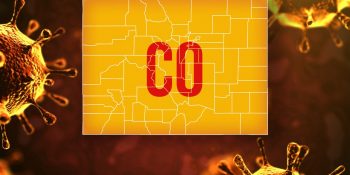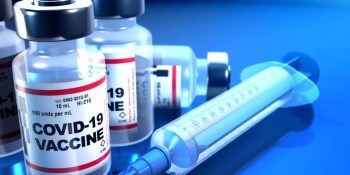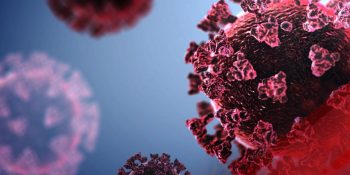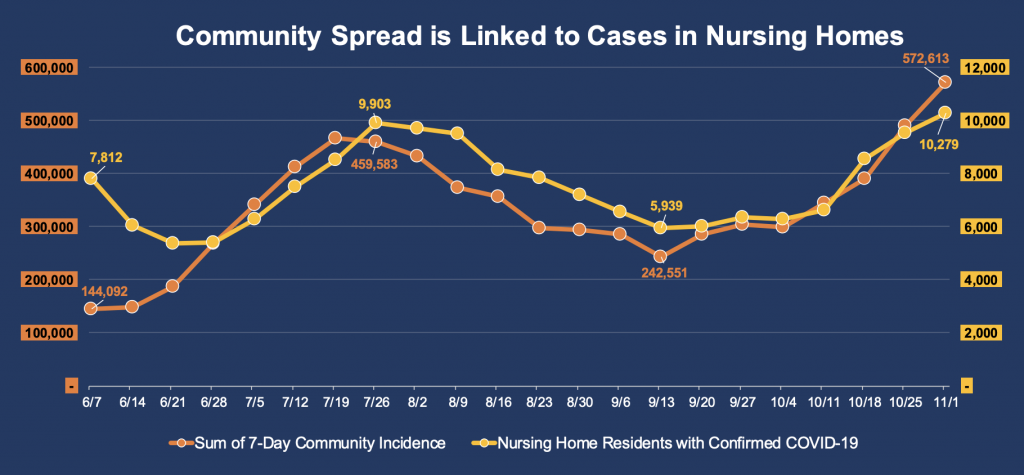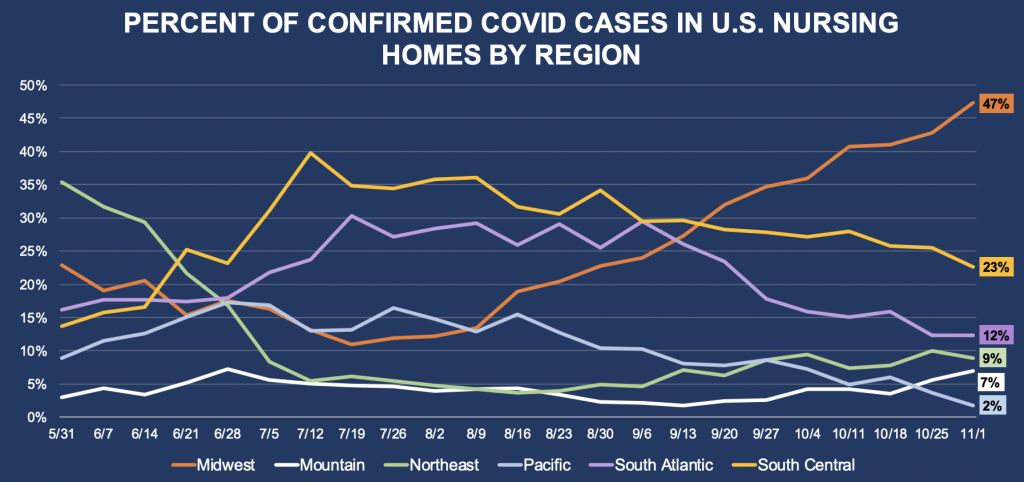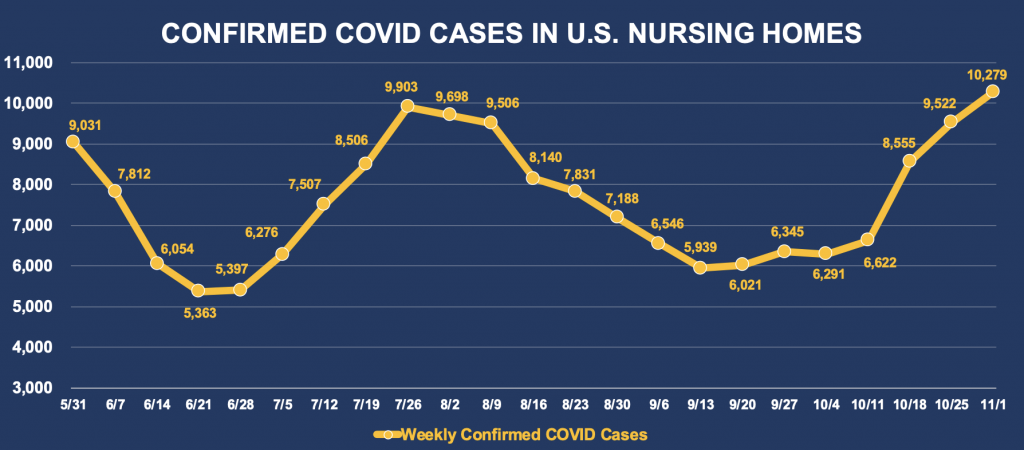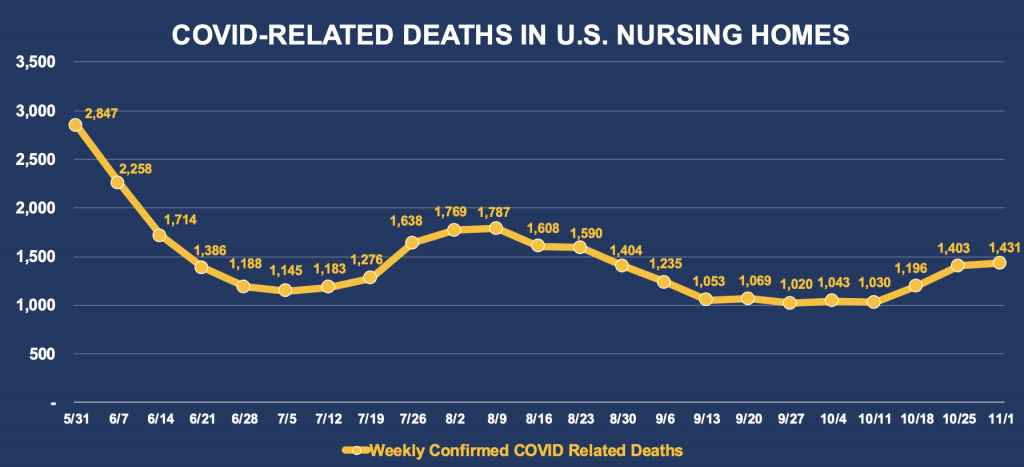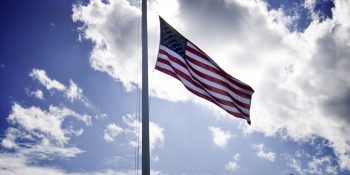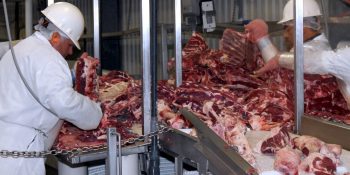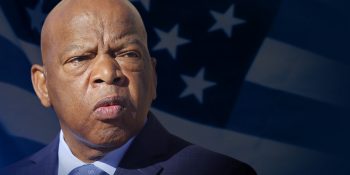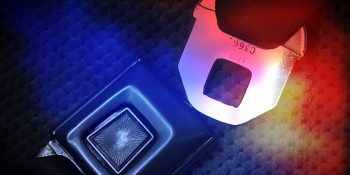ATLANTA (AP) _ A transcript of former President Barack Obama’s address to those present at the funeral service for John Lewis at Ebenezer Baptist Church in Atlanta on Thursday.
___
James wrote to the believers, “Consider it pure joy, my brothers and sisters, whenever you face trials of many kinds, because you know that the testing of your faith produces perseverance. Let perseverance finish its work so that you may be mature and complete, lacking nothing.”
It is a great honor to be back in Ebenezer Baptist Church, in the pulpit of its greatest pastor, Dr. Martin Luther King, Jr., to pay my respects to perhaps his finest disciple – an American whose faith was tested again and again to produce a man of pure joy and unbreakable perseverance – John Robert Lewis.
To those who have spoken to Presidents Bush and Clinton, Madam Speaker, Reverend Warnock, Reverend King, John’s family, friends, his beloved staff, Mayor Bottoms – I’ve come here today because I, like so many Americans, owe a great debt to John Lewis and his forceful vision of freedom.
Now, this country is a constant work in progress. We were born with instructions: to form a more perfect union. Explicit in those words is the idea that we are imperfect; that what gives each new generation purpose is to take up the unfinished work of the last and carry it further than anyone might have thought possible.
John Lewis – the first of the Freedom Riders, head of the Student Nonviolent Coordinating Committee, youngest speaker at the March on Washington, leader of the march from Selma to Montgomery, Member of Congress representing the people of this state and this district for 33 years, mentor to young people, including me at the time, until his final day on this Earth – he not only embraced that responsibility, but he made it his life’s work.
Which isn’t bad for a boy from Troy. John was born into modest means – that means he was poor – in the heart of the Jim Crow South to parents who picked somebody else’s cotton. Apparently, he didn’t take to farm work – on days when he was supposed to help his brothers and sisters with their labor, he’d hide under the porch and make a break for the school bus when it showed up. His mother, Willie Mae Lewis, nurtured that curiosity in this shy, serious child. “Once you learn something,” she told her son, “once you get something inside your head, no one can take it away from you.”
As a boy, John listened through the door after bedtime as his father’s friends complained about the Klan. One Sunday as a teenager, he heard Dr. King preach on the radio. As a college student in Tennessee, he signed up for Jim Lawson’s workshops on the tactic of nonviolent civil disobedience. John Lewis was getting something inside his head, an idea he couldn’t shake that took hold of him – that nonviolent resistance and civil disobedience were the means to change laws, but also change hearts, and change minds, and change nations, and change the world.
So he helped organize the Nashville campaign in 1960. He and other young men and women sat at a segregated lunch counter, well-dressed, straight-backed, refusing to let a milkshake poured on their heads, or a cigarette extinguished on their backs, or a foot aimed at their ribs, refused to let that dent their dignity and their sense of purpose. And after a few months, the Nashville campaign achieved the first successful desegregation of public facilities in any major city in the South.
John got a taste of jail for the first, second, third . well, several times. But he also got a taste of victory. And it consumed him with righteous purpose. And he took the battle deeper into the South.
That same year, just weeks after the Supreme Court ruled that segregation of interstate bus facilities was unconstitutional, John and Bernard Lafayette bought two tickets, climbed aboard a Greyhound, sat up front, and refused to move. This was months before the first official Freedom Rides. He was doing a test. The trip was unsanctioned. Few knew what they were up to. And at every stop, through the night, apparently the angry driver stormed out of the bus and into the bus station. And John and Bernard had no idea what he might come back with or who he might come back with. Nobody was there to protect them. There were no camera crews to record events. You know, sometimes, we read about this and kind of take it for granted. Or at least we act as if it was inevitable. Imagine the courage of two people Malia’s age, younger than my oldest daughter, on their own, to challenge an entire infrastructure of oppression.
John was only twenty years old. But he pushed all twenty of those years to the center of the table, betting everything, all of it, that his example could challenge centuries of convention, and generations of brutal violence, and countless daily indignities suffered by African Americans.
Like John the Baptist preparing the way, like those Old Testament prophets speaking truth to kings, John Lewis did not hesitate – he kept on getting on board buses and sitting at lunch counters, got his mugshot taken again and again, marched again and again on a mission to change America.
Spoke to a quarter million people at the March on Washington when he was just 23.
Helped organize the Freedom Summer in Mississippi when he was just 24.
At the ripe old age of 25, John was asked to lead the march from Selma to Montgomery. He was warned that Governor Wallace had ordered troopers to use violence. But he and Hosea Williams and others led them across that bridge anyway. And we’ve all seen the film and the footage and the photographs, and President Clinton mentioned the trench coat, the knapsack, the book to read, the apple to eat, the toothbrush – apparently jails weren’t big on such creature comforts. And you look at those pictures and John looks so young and he’s small in stature. Looking every bit that shy, serious child that his mother had raised and yet, he is full of purpose. God’s put perseverance in him.
And we know what happened to the marchers that day. Their bones were cracked by billy clubs, their eyes and lungs choked with tear gas. As they knelt to pray, which made their heads even easier targets, and John was struck in the skull. And he thought he was going to die, surrounded by the sight of young Americans gagging, and bleeding, and trampled, victims in their own country of state-sponsored violence.
And the thing is, I imagine initially that day, the troopers thought that they had won the battle. You can imagine the conversations they had afterwards. You can imagine them saying, “yeah, we showed them.” They figured they’d turned the protesters back over the bridge; that they’d kept, that they’d preserved a system that denied the basic humanity of their fellow citizens. Except this time, there were some cameras there. This time, the world saw what happened, bore witness to Black Americans who were asking for nothing more than to be treated like other Americans. Who were not asking for special treatment, just the equal treatment promised to them a century before, and almost another century before that.
When John woke up, and checked himself out of the hospital, he would make sure the world saw a movement that was, in the words of Scripture, “hard pressed on every side, but not crushed; perplexed but not in despair; persecuted, but not abandoned; struck down, but not destroyed.” They returned to Brown Chapel, a battered prophet, bandages around his head, and he said more marchers will come now. And the people came. And the troopers parted. And the marchers reached Montgomery. And their words reached the White House – and Lyndon Johnson, son of the South, said “We shall overcome,” and the Voting Rights Act was signed into law.
The life of John Lewis was, in so many ways, exceptional. It vindicated the faith in our founding, redeemed that faith; that most American of ideas; that idea that any of us ordinary people without rank or wealth or title or fame can somehow point out the imperfections of this nation, and come together, and challenge the status quo, and decide that it is in our power to remake this country that we love until it more closely aligns with our highest ideals. What a radical ideal. What a revolutionary notion. This idea that any of us, ordinary people, a young kid from Troy can stand up to the powers and principalities and say no this isn’t right, this isn’t true, this isn’t just. We can do better. On the battlefield of justice, Americans like John, Americans like the Reverends Lowery and C.T. Vivian, two other patriots that we lost this year, liberated all of us that many Americans came to take for granted.
America was built by people like them. America was built by John Lewises. He as much as anyone in our history brought this country a little bit closer to our highest ideals. And someday, when we do finish that long journey toward freedom; when we do form a more perfect union – whether it’s years from now, or decades, or even if it takes another two centuries – John Lewis will be a founding father of that fuller, fairer, better America.
And yet, as exceptional as John was, here’s the thing: John never believed that what he did was more than any citizen of this country can do. I mentioned in the statement the day John passed, the thing about John was just how gentle and humble he was. And despite this storied, remarkable career, he treated everyone with kindness and respect because it was innate to him – this idea that any of us can do what he did if we are willing to persevere.
He believed that in all of us, there exists the capacity for great courage, that in all of us there is a longing to do what’s right, that in all of us there is a willingness to love all people, and to extend to them their God-given rights to dignity and respect. So many of us lose that sense. It’s taught out of us. We start feeling as if, in fact, that we can’t afford to extend kindness or decency to other people. That we’re better off if we are above other people and looking down on them, and so often that’s encouraged in our culture. But John always saw the best in us. And he never gave up, and never stopped speaking out because he saw the best in us. He believed in us even when we didn’t believe in ourselves. As a Congressman, he didn’t rest; he kept getting himself arrested. As an old man, he didn’t sit out any fight; he sat in, all night long, on the floor of the United States Capitol. I know his staff was stressed.
But the testing of his faith produced perseverance. He knew that the march is not yet over, that the race is not yet won, that we have not yet reached that blessed destination where we are judged by the content of our character. He knew from his own life that progress is fragile; that we have to be vigilant against the darker currents of this country’s history, of our own history, with their whirlpools of violence and hatred and despair that can always rise again.
Bull Connor may be gone. But today we witness with our own eyes police officers kneeling on the necks of Black Americans. George Wallace may be gone. But we can witness our federal government sending agents to use tear gas and batons against peaceful demonstrators. We may no longer have to guess the number of jellybeans in a jar in order to cast a ballot. But even as we sit here, there are those in power are doing their darnedest to discourage people from voting – by closing polling locations, and targeting minorities and students with restrictive ID laws, and attacking our voting rights with surgical precision, even undermining the postal service in the run-up to an election that is going to be dependent on mailed-in ballots so people don’t get sick.
Now, I know this is a celebration of John’s life. There are some who might say we shouldn’t dwell on such things. But that’s why I’m talking about it. John Lewis devoted his time on this Earth fighting the very attacks on democracy and what’s best in America that we are seeing circulate right now.
He knew that every single one of us has a God-given power. And that the fate of this democracy depends on how we use it; that democracy isn’t automatic, it has to be nurtured, it has to be tended to, we have to work at it, it’s hard. And so he knew it depends on whether we summon a measure, just a measure, of John’s moral courage to question what’s right and what’s wrong and call things as they are. He said that as long as he had breath in his body, he would do everything he could to preserve this democracy. That as long as we have breath in our bodies, we have to continue his cause. If we want our children to grow up in a democracy – not just with elections, but a true democracy, a representative democracy, a big-hearted, tolerant, vibrant, inclusive America of perpetual self-creation – then we are going to have to be more like John. We don’t have to do all the things he had to do because he did them for us. But we have got to do something. As the Lord instructed Paul, “Do not be afraid, go on speaking; do not be silent, for I am with you, and no one will attack you to harm you, for I have many in this city who are my people.” Just everybody’s just got to come out and vote. We’ve got all those people in the city but we can’t do nothing.
Like John, we have got to keep getting into that good trouble. He knew that nonviolent protest is patriotic; a way to raise public awareness, put a spotlight on injustice, and make the powers that be uncomfortable.
Like John, we don’t have to choose between protest and politics, it is not an either-or situation, it is a both-and situation. We have to engage in protests where that is effective but we also have to translate our passion and our causes into laws and institutional practices. That’s why John ran for Congress thirty-four years ago.
Like John, we have got to fight even harder for the most powerful tool we have, which is the right to vote. The Voting Rights Act is one of the crowning achievements of our democracy. It’s why John crossed that bridge. It’s why he spilled his blood. And by the way, it was the result of Democratic and Republican efforts. President Bush, who spoke here earlier, and his father, both signed its renewal when they were in office. President Clinton didn’t have to because it was the law when he arrived so instead he made a law that made it easier for people to register to vote.
But once the Supreme Court weakened the Voting Rights Act, some state legislatures unleashed a flood of laws designed specifically to make voting harder, especially, by the way, state legislatures where there is a lot of minority turnout and population growth. That’s not necessarily a mystery or an accident. It was an attack on what John fought for. It was an attack on our democratic freedoms. And we should treat it as such.
If politicians want to honor John, and I’m so grateful for the legacy of work of all the Congressional leaders who are here, but there’s a better way than a statement calling him a hero. You want to honor John? Let’s honor him by revitalizing the law that he was willing to die for. And by the way, naming it the John Lewis Voting Rights Act, that is a fine tribute. But John wouldn’t want us to stop there, trying to get back to where we already were. Once we pass the John Lewis Voting Rights Act, we should keep marching to make it even better.
By making sure every American is automatically registered to vote, including former inmates who’ve earned their second chance.
By adding polling places, and expanding early voting, and making Election Day a national holiday, so if you are someone who is working in a factory, or you are a single mom who has got to go to her job and doesn’t get time off, you can still cast your ballot.
By guaranteeing that every American citizen has equal representation in our government, including the American citizens who live in Washington, D.C. and in Puerto Rico. They are Americans.
By ending some of the partisan gerrymandering- so that all voters have the power to choose their politicians, not the other way around.
And if all this takes eliminating the filibuster – another Jim Crow relic – in order to secure the God-given rights of every American, then that’s what we should do.
And yet, even if we do all this – even if every bogus voter suppression law was struck off the books today – we have got to be honest with ourselves that too many of us choose not to exercise the franchise; that too many of our citizens believe their vote won’t make a difference, or they buy into the cynicism that, by the way, is the central strategy of voter suppression, to make you discouraged, to stop believing in your own power.
So we are also going to have to remember what John said: “If you don’t do everything you can to change things, then they will remain the same. You only pass this way once. You have to give it all you have.” As long as young people are protesting in the streets, hoping real change takes hold, I’m hopeful but we cannot casually abandon them at the ballot box. Not when few elections have been as urgent, on so many levels, as this one. We cannot treat voting as an errand to run if we have some time. We have to treat it as the most important action we can take on behalf of democracy.
Like John, we have to give it all we have.
I was proud that John Lewis was a friend of mine. I met him when I was in law school. He came to speak and I went up and I said, “Mr. Lewis, you are one of my heroes. What inspired me more than anything as a young man was to see what you and Reverend Lawson and Bob Moses and Diane Nash and others did.” And he got that kind of – aw shucks, thank you very much.
The next time I saw him, I had been elected to the United States Senate. And I told him, “John, I am here because of you.” On Inauguration Day in 2008, 2009, he was one of the first people that I greeted and hugged on that stand. I told him, “This is your day too.”
He was a good and kind and gentle man. And he believed in us – even when we don’t believe in ourselves. It’s fitting that the last time John and I shared a public forum was on Zoom. I am pretty sure that neither he nor I set up the Zoom call because we didn’t know how to work it. It was a virtual town hall with a gathering of young activists who had been helping to lead this summer’s demonstrations in the wake of George Floyd’s death. And afterwards, I spoke to John privately, and he could not have been prouder to see this new generation of activists standing up for freedom and equality; a new generation that was intent on voting and protecting the right to vote; in some cases, a new generation running for political office
I told him, all those young people, John – of every race and every religion, from every background and gender and sexual orientation – John, those are your children. They learned from your example, even if they didn’t always know it. They had understood, through him, what American citizenship requires, even if they had only heard about his courage through the history books.
“By the thousands, faceless, anonymous, relentless young people, black and white.have taken our whole nation back to those great wells of democracy which were dug deep by the founding fathers in the formulation of the Constitution and the Declaration of Independence.”
Dr. King said that in the 1960s. And it came true again this summer.
We see it outside our windows, in big cities and rural towns, in men and women, young and old, straight Americans and LGBTQ Americans, Blacks who long for equal treatment and whites who can no longer accept freedom for themselves while witnessing the subjugation of their fellow Americans. We see it in everybody doing the hard work of overcoming complacency, of overcoming our own fears and our own prejudices, our own hatreds. You see it in people trying to be better, truer versions of ourselves.
And that’s what John Lewis teaches us. That’s where real courage comes from. Not from turning on each other, but by turning towards one another. Not by sowing hatred and division, but by spreading love and truth. Not by avoiding our responsibilities to create a better America and a better world, but by embracing those responsibilities with with joy and perseverance and discovering that in our beloved community, we do not walk alone.
What a gift John Lewis was. We are all so lucky to have had him walk with us for a while, and show us the way.
God bless you all. God bless America. God bless this gentle soul who pulled it closer to its promise.
Photo Credit: MGN Online
SPREAD THE NEWS
COMMENT, Like, Follow & SHARE @I70Scout
